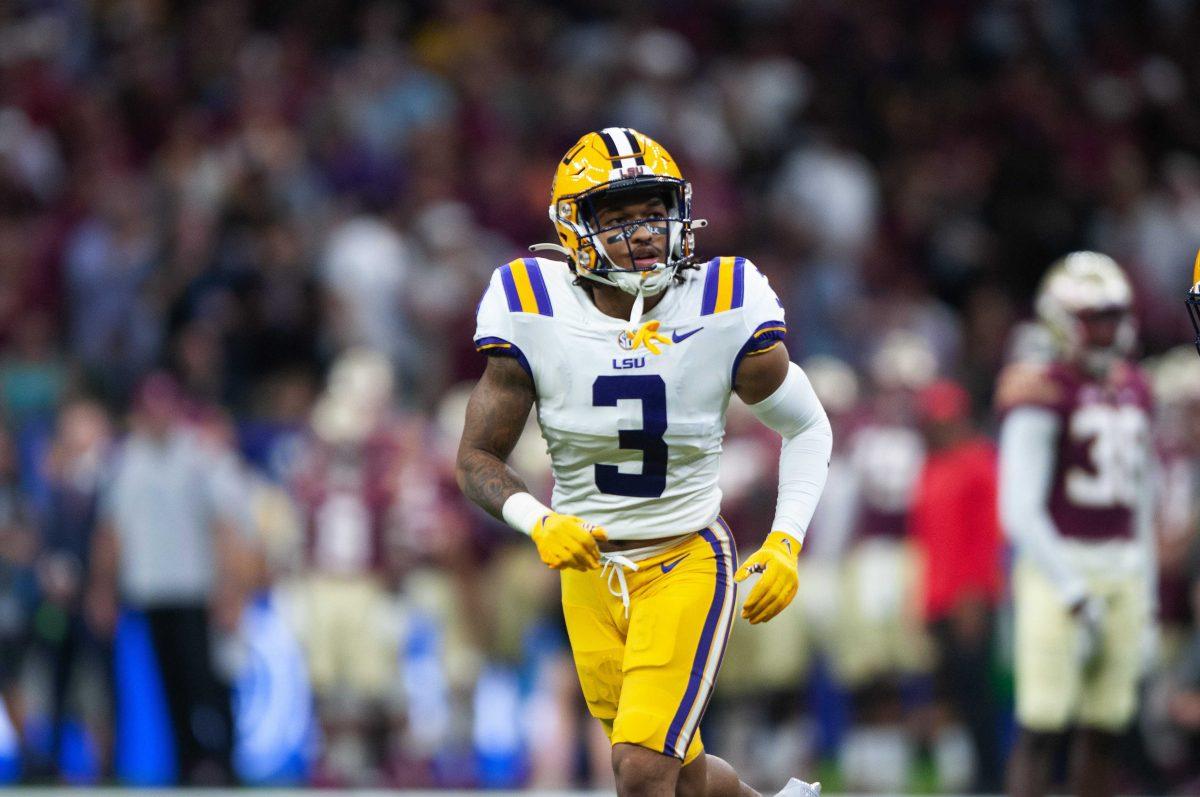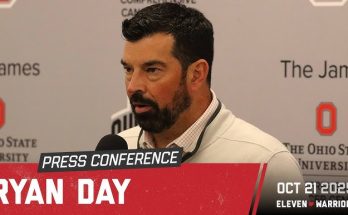Former LSU Player Brings Medical Negligence Lawsuit, Claims Coaches Haven’t Contacted Him in Over a Year
A former LSU (Louisiana State University) football player is now making headlines for reasons far beyond his athletic prowess on the field. After enduring a serious injury during his time with the team, he is suing the university for medical negligence, claiming that the coaching staff has failed to offer any support or even reach out to him in over a year. The lawsuit raises important questions about the responsibilities of universities, coaches, and medical staff when it comes to the welfare of athletes, particularly after they leave the program.
This legal battle not only focuses on the individual’s injury and recovery but also sheds light on broader issues within college sports related to player care, mental health, and the relationship between athletes and their alma maters once they move on from the program.
Background: The Injury and the Lawsuit
The player in question, whose identity has been revealed in court filings, played for LSU’s football team for several years, participating in high-profile games as part of the prestigious program. During his tenure, he suffered a serious physical injury—one that has left him with ongoing medical and psychological issues.
The lawsuit, filed in a Louisiana federal court, accuses LSU and the coaching staff of medical negligence, citing that the medical team failed to provide appropriate care and rehabilitation for his injury. The former player claims that despite being a key member of the team, he was subjected to insufficient medical treatment, improper diagnoses, and a lack of post-injury care. Moreover, he argues that LSU’s medical staff failed to adequately monitor the long-term effects of his injury, a critical factor that could have prevented further complications.
The medical negligence claim rests on the assertion that LSU’s treatment protocols were not only substandard but also violated the duty of care owed to student-athletes by the university. The lawsuit goes on to argue that the failure to act with due diligence has resulted in lasting damage, which now requires ongoing medical intervention that was not provided by the university.
What has drawn significant attention, however, is the former player’s claim that, in addition to the poor medical treatment, LSU’s coaching staff has not made any effort to contact him for more than a year following his departure from the program. This lack of communication has become one of the focal points of the case, as it speaks to the perceived abandonment of athletes once they are no longer actively participating in the team.
The Role of Coaches in Athlete Welfare
The former player’s lawsuit underscores a critical issue in college sports—the responsibility of coaches and staff for the welfare of athletes, even after they leave the team. The athlete’s claims that no coaches have reached out to him in over a year are a stark reminder of how college athletes, who dedicate years of their lives to their respective programs, can be forgotten once they no longer contribute to the success of the team.
The relationship between college athletes and their coaches is often deeply personal. Coaches serve as mentors, providing guidance not only on the field but in the athletes’ personal and academic lives. For many, the coach-athlete bond extends beyond the game, with coaches playing a crucial role in their lives post-college, helping them navigate their transition to professional careers or other paths.
In this case, the former LSU player’s allegations reflect a disconnect between the ideals of player-coach relationships and the reality for many athletes who find themselves discarded once their playing days are over. The lack of outreach from the coaching staff raises important questions about accountability, empathy, and the treatment of student-athletes by those who benefit from their labor.
Former LSU football players and other alumni have publicly voiced support for the player, with many criticizing the university’s apparent lack of attention to its former athletes. In a time when player welfare is receiving increased focus, especially with the growing recognition of sports-related injuries and mental health challenges, this lawsuit adds to the growing conversation about the need for programs to prioritize the well-being of athletes both during and after their time with the team.
A Broader Culture of Neglect?
The medical negligence lawsuit and the player’s claims of abandonment by LSU’s coaching staff fit into a larger, ongoing conversation about the treatment of college athletes, particularly when it comes to medical care. In recent years, there has been increased scrutiny of how schools and athletic programs handle injuries, recovery, and long-term health risks associated with intense physical competition.
The National Collegiate Athletic Association (NCAA) has been criticized for not doing enough to address issues related to player safety and health, with many former athletes and advocates arguing that the organization often fails to take responsibility for injuries sustained by players during their careers. Injuries sustained on the field, especially in high-contact sports like football, can have lasting effects that may not be immediately apparent. The long-term consequences of concussions, musculoskeletal injuries, and mental health issues have become more widely recognized, yet the resources and support for players after they leave the program are often inadequate.
In this context, the former LSU player’s lawsuit highlights the vulnerabilities of athletes who suffer injuries while playing for high-profile college programs. It speaks to the systemic problem of neglecting athletes once their competitive value is no longer apparent, with many former players left to navigate the challenges of rehabilitation and recovery without adequate support systems in place.
The Legal Implications of Medical Negligence in College Sports
The lawsuit has significant legal implications for how medical negligence cases involving college athletes are handled. For one, it challenges the assumption that universities are absolved from responsibility for their former athletes once they leave the program. Historically, universities and coaching staff have often argued that their responsibility to student-athletes ends once they graduate or leave the team.
This case could set a precedent for other former athletes who have experienced subpar medical treatment or who feel abandoned by their alma maters after their playing days are over. Legal experts predict that the case may inspire other athletes who feel they have been mistreated to file similar suits, potentially creating a wave of legal challenges for universities, coaches, and athletic departments across the country.
The player’s legal team is working to demonstrate that LSU failed to live up to its duty of care, not only in terms of medical treatment but also by neglecting to follow up with the player and ensure his recovery. If successful, this case could establish new standards for how universities must handle medical care and communication with athletes, especially in the aftermath of injuries.
The Response from LSU and Coaches
In response to the lawsuit, LSU has issued a statement acknowledging the player’s legal claim but refraining from commenting on the specifics of the case due to pending litigation. The university has also pointed out that it follows NCAA guidelines and protocols for athlete health and safety, which include medical evaluations, rehabilitation, and post-care plans. However, the lack of follow-up and communication alleged by the former player raises serious questions about how effectively these policies are being implemented.
As for the coaching staff, LSU has not addressed the player’s claim that no coaches have contacted him in over a year. While it is not uncommon for coaches to move on from former players once they are no longer part of the program, the silence in this particular case has raised eyebrows. Coaches are often seen as key figures in the lives of student-athletes, and the lack of communication with this former player adds to the perception that LSU has not fulfilled its obligations to him as a person, not just as an athlete.
The Impact on Future College Athletes
The ongoing legal battle serves as a wake-up call for both colleges and student-athletes alike. For current and future players, the case highlights the importance of understanding the medical and legal protections available to them, particularly when it comes to long-term injuries and aftercare. Many athletes may be unaware of the extent to which they are entitled to medical care, support, and communication with their institutions after they leave the program.
Moreover, the case could encourage athletes to demand more comprehensive care and clearer agreements on post-injury support when entering college sports programs. For colleges and universities, it serves as a reminder of the importance of maintaining a responsible and supportive relationship with athletes, even after they graduate or leave the program.

